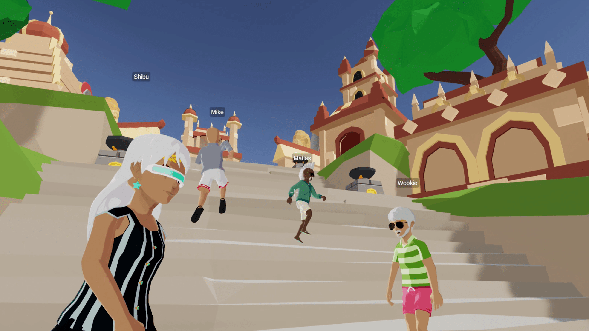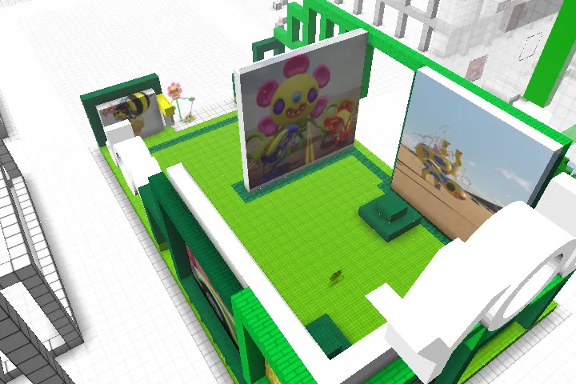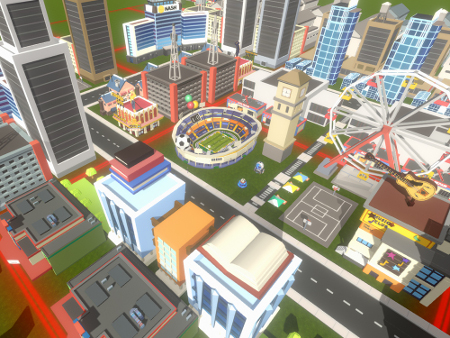Will Second Life Get A Second Life? Five Virtual Lands on the Blockchain
Do these five virtual lands have what it takes to become the next Second Life, Sim City, or Minecraft?

Share this article
When Second Life went live in 2003, it became a pioneer of virtual property. Players could buy their own land, customize it, and explore the world. Since then, Second Life has gone the way of MySpace—but now, several blockchain-based games are trying to breathe new life into the virtual world genre.
This is an ambitious use case for non-fungible tokens: the non-interchangeable assets which form the building blocks of CryptoKitties and other blockchain collectibles. Each NFT represents a parcel of virtual land that users can buy, sell, and trade. Other systems are used to generate the digital world, but the land economics are entirely based on crypto and blockchain.
There’s a lot of hype surrounding these projects, but most of that hype is limited to crypto enthusiasts. Blockchain-based gaming can be a tough sell, and nobody wants to buy homes in a digital ghost town. Here are five projects which are attempting to create lasting and vibrant virtual worlds:
Decentraland: The Leading Blockchain-based Virtual World

Decentraland is the most significant project of its type: with stylish cel-shaded graphics and upcoming VR support, its properties are in high demand. Even though Decentraland’s world explorer hasn’t gone live yet, property will still cost you quite a bit: right now, the cheapest land sells for 10,000 MANA ($350), which is Decentraland’s in-world asset.
Since Decentraland trading is currently speculative, virtual land prices could collapse when the world goes live. However, Decentraland has imposed scarcity on its land supply, which could keep prices high: in December 2018, there were just 9000 LAND tokens left to be claimed, and this should encourage users to trade existing virtual land.
CryptoVoxels: A Minecraft-Like Virtual World

CryptoVoxels is a stripped-down version of Decentraland. Much like its counterpart, it represents virtual land with Ethereum-based NFTs, but its visuals are much more basic. The app takes inspiration from Minecraft in all of its minimalist, blocky glory. However, CryptoVoxels’ simplicity also gives it one big advantage: you can visit it right now.
Virtual land in CryptoVoxels is somewhat scarce: the world is growing fast, but it won’t get any bigger than 36 x 18 kilometers. Surprisingly, CryptoVoxels’ land parcels cost about half as much as those on Decentraland: right now, the cheapest plot of land costs 0.7 ETH, or $150. That’s fairly impressive for a year-old project with little hype.
NeoWorld: A Blockchain-Based MMO and Virtual World

NeoWorld is primarily based on Ethereum, despite its name. It describes itself as an MMO game, and as such, it puts a heavy emphasis on virtual “work.” Players can collect resources, do jobs, and earn skills. Ultimately, virtual land trading takes a backseat to in-game commerce, powered by its NASH token.
NeoWorld has flexible scarcity: it started with seven continents, each with 40,000 land parcels, but the community can vote for more. Supply and demand are not the only factors that affect land prices: in-game activity affects prices as well. However, it’s hard to say exactly how this is affecting prices, as auctions are by invite only.
Upland: A Monopoly-Like Property Trading Game

Upland is an EOS-based property trading game that is scheduled to go live in 2020. It’s not quite a virtual world: the game uses non-fungible tokens to represent virtual land parcels, but it is a casual game in the vein of Monopoly. You can collect UPX tokens as property revenue, and you can earn even more if you own multiple properties of a single type.
Upland properties will exist in limited amounts, with “provable scarcity,” according to the project’s blog, but it’s not clear exactly how much virtual land exists. On top of this, it’s impossible to say what land prices will look like, since the market is in a closed beta. However, Upland’s simple gameplay might attract users and keep demand high.
MegaCryptoPolis: SimCity on the Blockchain

MegaCryptoPolis takes a SimCity-like approach to the genre. It uses NFTs to represent properties, but it also uses those tokens to represent citizens, appliances, and other resources. This means that virtual land is not the only thing that you can trade — and that the game operates according to fairly complex business-sim rules.
All of MegaCryptoPolis’ tokens exist in scarce quantities, and its land prices are fairly low—recently, land has been selling for as little as 0.05 ETH ($1). These low prices might just be due to the niche appeal of the game, but MegaCryptopolis may have broader appeal soon: it’s currently adding a 3D mode that will allow users to explore city districts.
Is Virtual Land A Sustainable Genre?
Virtual property games face many challenges, even compared to other blockchain projects. Second Life’s usership rates have fallen dramatically, making it a short-lived fad. Meanwhile, Minecraft and SimCity have never actually made real property sales part of their gameplay. Blockchain-based worlds may be able to hit a sweet spot for supply and demand, but nobody really knows.
However, blockchain also has one big advantage: it really allows you to own your virtual land. Unlike Second Life, which charges subscription, taxes and maintenance fees, blockchain worlds are typically free to join. Meanwhile, once you own blockchain-based land, it’s yours to hold, buy, or sell, as you wish — even if the site goes under.
Ultimately, these games must attract and occupy users. Decentraland and CryptoVoxels, unfortunately, give users very few concrete goals. Meanwhile, NeoWorld and MegaCryptoPolis could scare away users with complex rules. Fortunately, this is just one application for blockchain — and the gaming industry has plenty of other possibilities.
Share this article
